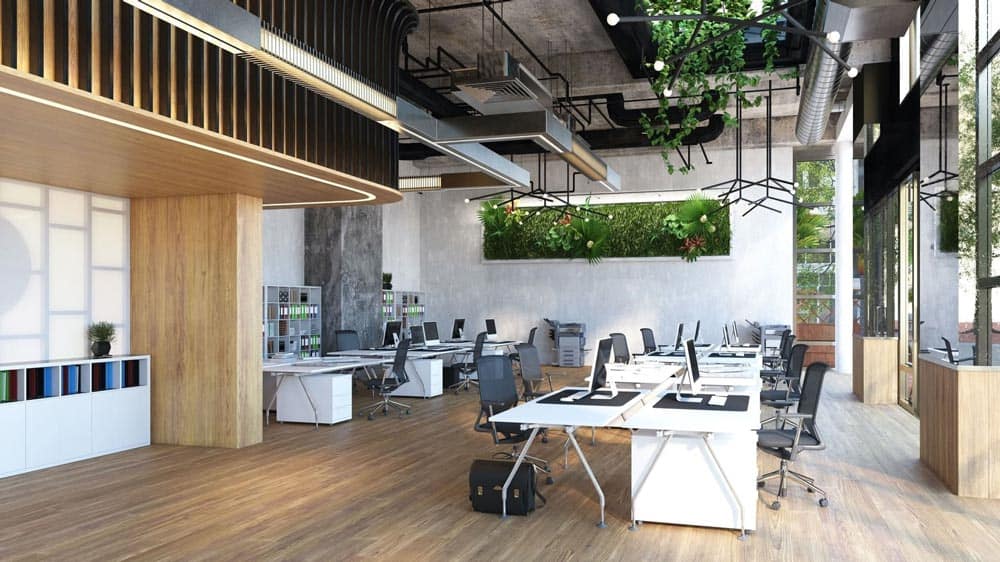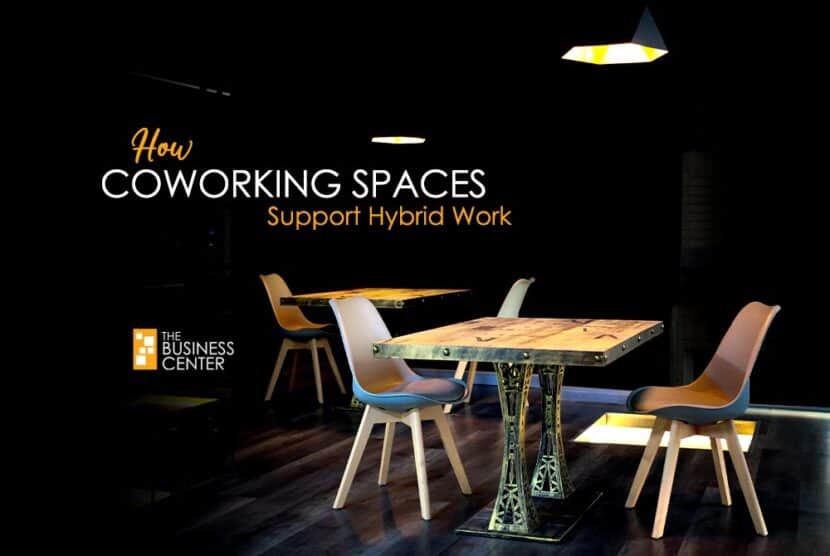In recent years, the concept of hybrid work has gained immense popularity, thanks to advancements in technology and shifting work dynamics. Hybrid work allows employees to have the best of both worlds – the freedom and flexibility of working remotely and the opportunity for face-to-face collaboration in a shared workspace. Coworking spaces have emerged as a powerful solution that caters to the needs of hybrid work models, providing professionals with an ideal environment that supports productivity, collaboration, and work-life balance. Let’s explore the ways in which coworking spaces are uniquely positioned to support the growing trend of hybrid work.

Dynamic Work Environments:
Coworking spaces are designed to accommodate diverse work styles and preferences. The versatility of coworking spaces enables employees to choose a workspace that suits their needs on any given day. Whether it’s a quiet space for focused tasks or a collaborative area for team meetings, coworking spaces provide the flexibility required for hybrid work models.
Professional Infrastructure and Amenities:
One of the key advantages of coworking spaces is their well-equipped infrastructure. They are equipped with high-speed internet, state-of-the-art technology, and modern amenities like meeting rooms, printing facilities, and audiovisual equipment. This ensures that professionals can seamlessly transition between remote work and in-person collaboration without compromising on productivity or efficiency. Coworking spaces take care of the logistical challenges and provide professionals with a professional environment that supports their work requirements.
Networking and Collaboration Opportunities:
One of the significant benefits of coworking spaces is the opportunity for networking and collaboration. Unlike traditional offices or remote work setups, coworking spaces bring together professionals from diverse industries and backgrounds. This environment fosters connections and allows for meaningful interactions, idea sharing, and collaboration. Hybrid workers can leverage these networking opportunities to expand their professional network, seek advice, and collaborate on projects with like-minded individuals. Coworking spaces often organize community events, workshops, and networking sessions to facilitate these interactions.

Enhanced Work-Life Balance:
Hybrid work models prioritize work-life balance, and coworking spaces play a crucial role in supporting this balance. For those who work from home, the lines between personal and professional life can blur, leading to potential burnout and decreased productivity. By providing a separate physical workspace outside the home, coworking spaces create a clear separation between work and personal life. This separation allows professionals to maintain a healthier work-life balance, reduce distractions, and establish boundaries. Additionally, coworking spaces often offer amenities such as fitness centers, relaxation zones, and wellness programs, further promoting overall well-being.
Geographic Flexibility:
Coworking spaces provide a unique advantage for professionals engaged in hybrid work models that involve regular travel or remote working from different locations. With coworking spaces available in various cities and even different countries, individuals can maintain a consistent and professional workspace wherever they go. This flexibility eliminates the need to rely on temporary accommodations or work from crowded coffee shops, ensuring a stable and productive work environment regardless of location.
Hybrid work has become the new normal, and coworking spaces have emerged as an essential support system for this evolving work model. From offering dynamic work environments to fostering collaboration and providing networking opportunities, coworking spaces have proven to be the perfect blend of flexibility and productivity. As more and more professionals embrace the benefits of hybrid work, coworking spaces will continue to play a crucial role in supporting their needs and facilitating the blend of remote work and in-person collaboration.



